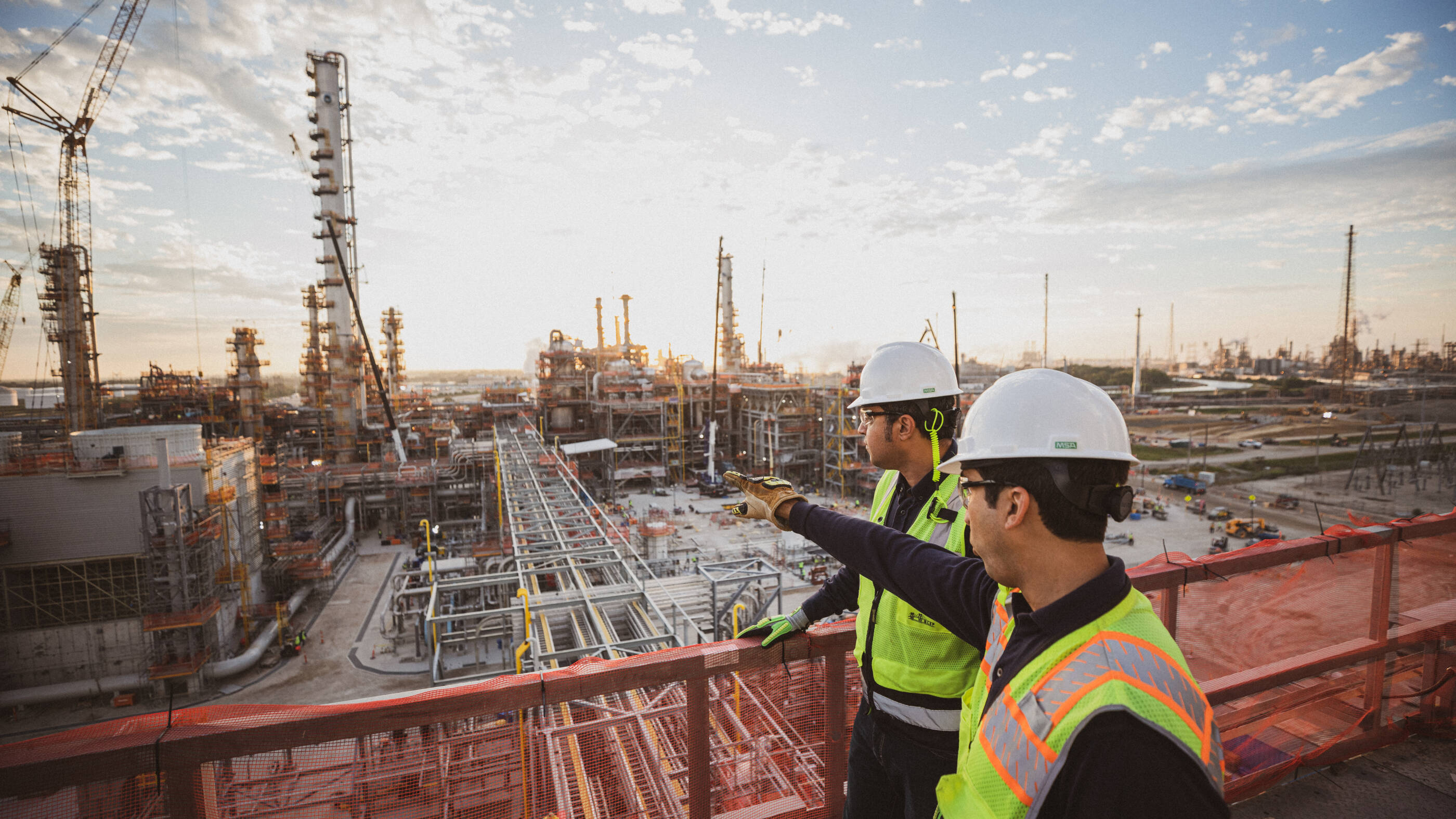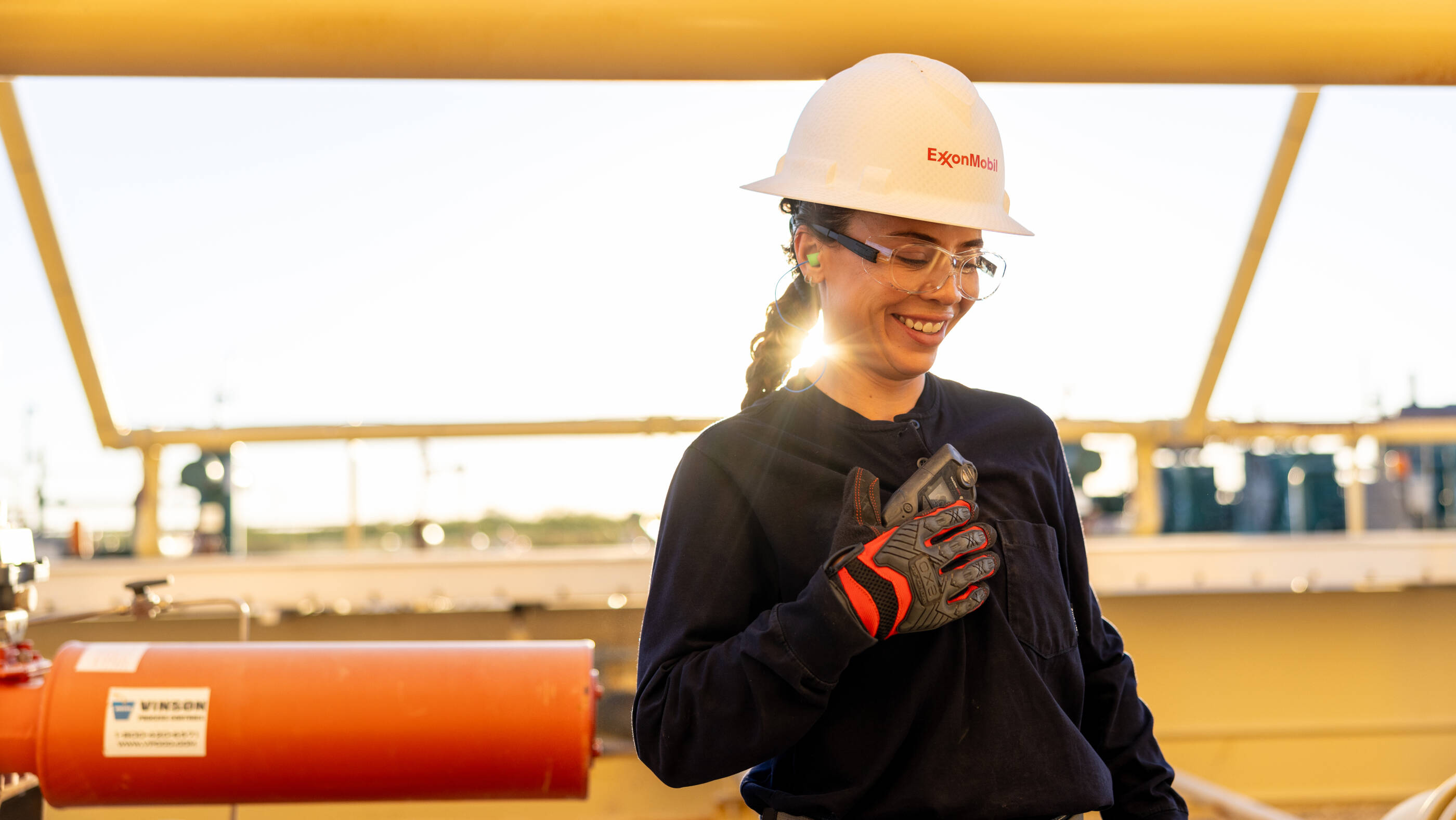ExxonMobil
Advocacy Report
ExxonMobil supports policies that support the energy industry.
We represent our shareholders, employees, customers, and communities in public policy. Our principles are consistent with our efforts to help solve the “and" equation – meeting global demand for energy products and helping society reduce greenhouse gas emissions. We share our policy positions clearly through various channels, guiding our lobbying efforts. Explore our report to learn about our main lobbying priorities.
Key takeaways
- Corporations and interest groups spent $5 billion in 2023 on lobbying. ExxonMobil’s total spend represents less than one quarter of 1% of that amount.
- ExxonMobil exceeds transparency requirements, providing details on our federal and state lobbying expenditures, political giving and trade association memberships.
- ExxonMobil advocates for a variety of emissions reductions policies including support for carbon capture and storage (CCS) and hydrogen, methane regulations, carbon intensity-based fuel standards, and more.
- In 2023, we assessed 65 organizations, including 10 new ones, for alignment on emissions reductions and energy security policies. We found 3 organizations partially misaligned – and one misaligned.
-
Driving a lower-emission future
Experts agree that certain lower-emission technologies are crucial – even under a multitude of transition pathways – including carbon capture and storage, hydrogen, electrification, and lower-emission fuels, among others. ExxonMobil supports policies that promote and regulate these technologies.Learn more -
ExxonMobil’s advocacy for carbon capture and storage policies
ExxonMobil strongly supports policies that advance the research, development, and deployment of carbon capture and storage (CCS) technologies and advocates for policies that encourage the use of CCS.Learn more -
ExxonMobil’s advocacy for advanced recycling in Europe
ExxonMobil supports advanced recycling, often called chemical recycling, as a vital solution alongside traditional recycling methods.Learn more -
ExxonMobil’s advocacy efforts
The Inflation Reduction Act (IRA) introduced new climate-related policies in the U.S. that aim to reduce greenhouse gas emissions by seeking to incentivize a lower-carbon economy.Learn more
Explore the Advocacy report
About the report
Learn about Exxon Mobil’s advocacy efforts, lobbying activities, and policy principles in our detailed report on public policy engagement.
Report
•
3 min read
Positions and principles
Explore ExxonMobil’s advocacy positions and principles for driving a lower-emission future through innovative technologies and sustainable policies.
Report
•
4 min read
Trade associations
Explore ExxonMobil’s alignment with trade associations to promote informed dialogue and sound public policy on priority issues.
Report
•
4 min read
Assessment methodology and results
Discover ExxonMobil’s methodology for assessing advocacy alignment with energy security and net-zero goals.
Report
•
5 min read
Direct lobbying activities
Explore ExxonMobil’s direct lobbying activities and expenditures, including federal, state, and grassroots lobbying efforts.
Report
•
2 min read
Federal Lobbying
Explore ExxonMobil’s federal lobbying activities and public disclosures.
Report
•
4 min read
Grassroots lobbying communications
Learn about ExxonMobil’s grassroots lobbying activities.
Report
•
2 min read
Trade associations, think tanks, and coalitions
Review ExxonMobil’s lobbying expenditures through trade associations, think tanks, and coalitions, including detailed reports on key policy issues and advocacy efforts.
Report
•
4 min read
ExxonMobil political activity reports
Explore ExxonMobil’s political activities and lobbying reports.
Report
•
3 min read
Publications
Explore more














